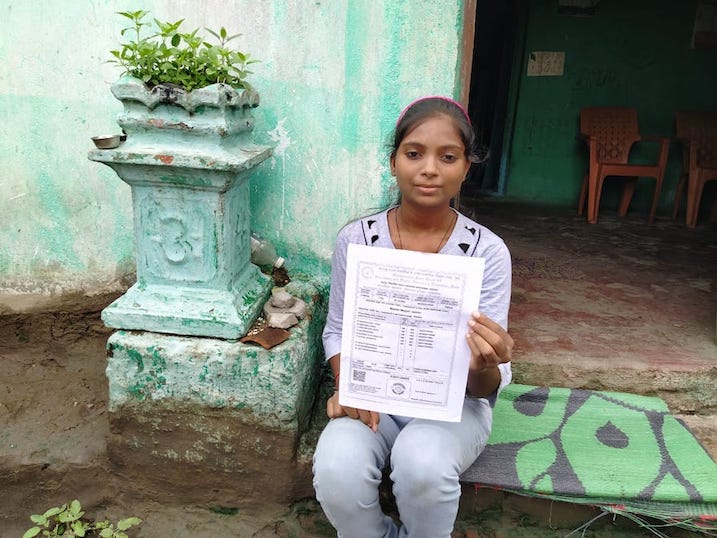In response to India’s critical skills gap, Magic Bus India Foundation has played a pivotal role in training and empowering young people with life and employability skills. Through its Adolescent Programme, the organisation has empowered 15 lakh adolescents in 2023-24, equipping them with life skills to achieve school, life, and work outcomes. In the same year, the Livelihood Programme, which is aligned with the International Labour Organisation (ILO) and National Occupational Standards (NOS) framework enrolled over 1.25 lakh youth and placed over 80% in sustainable jobs providing them with transferable life and employability skills. Over the last 25 years, Magic Bus has empowered the lives of nearly 34 lakh young people. It has its eyes set on scaling this to 65 lakh young people, enabling them to lead sustainable and dignified lives, thereby moving them out of poverty.
Jayant Rastogi, Global CEO, Magic Bus India Foundation, stated, ” Over the years, we have seamlessly integrated technology to achieve efficacy, transparency, credibility, and good governance, enabling us to reach more young people and deliver innovative solutions that empower them with the tools and support they need to succeed. Our team of passionate people, robust processes, rigorous programmes, and strong partnerships have enabled us to bring millions of young people into India’s growth narrative. The ongoing success of Magic Bus is rooted in our agility and forward-thinking mindset, as we continually seek new opportunities to amplify our impact and drive systemic change at scale. Today, Magic Bus stands as one of India’s largest direct implementation NGOs, pioneering life skills education and skilling for young people at scale.”
Magic Bus operates through two key programmes: the Adolescent Programme and the Livelihood Programme. The Adolescent Programme equips adolescents aged 12 to 18 years with life skills education, fostering higher-order thinking, analytical skills, and socio-emotional learning essential for success in the 21st century. The Programme is implemented using two approaches: Direct staff-led programme and Government partnership programme.
The Direct programme involves Magic Bus’ trained life skills and academic educators delivering experiential, activity-based life skills education and Foundational Literacy & Numeracy (FLN) skills to adolescents in schools and Community Learning Centres (CLCs) respectively. During the course of the programme, adolescents are equipped with knowledge that support them to learn as per their grade and are empowered with life skills that equip them with agency, enabling them to make life choices and build a gender responsive attitude. The programme supports adolescents to make a smoother school-to-work transition. Over the past year, this programme has reached over 3.31 lakh adolescents, engaging 2,155 schools and 335 CLCs across 23 states and UTs.
Through the Government partnership programme, Magic Bus operates at-scale and has established partnerships with eight state governments to deliver life skills education. The engagement with the state government focuses on system change. Magic Bus functions as the technical arm of the school education department, aiding in the integration of life skills into the system. This involves collaborating with multiple verticals of the department such as State Council of Educational Research and Training (SCERT), District Institute of Educational Training (DIETs), and other departments like youth affairs and sports, tribal-welfare department, among others. In collaboration with Magic Bus, education departments work on developing a life skills curriculum that is contextualised for the state, identifying, and training a cadre of master trainers (DIETs, block and cluster resources, and experienced teachers) who then cascade the training to schoolteachers. As part of this initiative, 24,759 government schoolteachers have been trained to deliver life skills education, thereby extending the programme’s reach and impact.
The Livelihood Programme introduces an alternative approach to skills development, focusing on transferable life and employability skills to help young individuals aged 18 to 25 secure sustainable jobs in the service sector. The programme prepares first-time job seekers for the job market by developing their skills tailored to specific job segments. This support helps them succeed in their careers, and build their individual agency, leading to doubling the family’s annual income with their economic contribution. The establishment of 117 livelihood centres across 17 states, along with the engagement of over 1,052 colleges signifies the successful collaboration with community and educational institutions to amplify the programme’s reach and impact.
Magic Bus places a strong emphasis on gender inclusivity through its flagship programmes, breaking stereotypes and empowering both young women and men. As a part of the Adolescent Programme, 52% of its participants are girls, who are equipped with life skills that enhance their self-efficacy, school regularity, and resilience, enabling them to complete their education and make informed life choices. By fostering an environment of gender equality, this programme helps adolescents challenge traditional gender roles and build a supportive community that encourages equal opportunities. In the Livelihood Programme, 60% of its participants are female, with 17 dedicated all-girls centres operating to nurture their potential. This programme empowers young women by enabling them to make informed decisions about their careers and lives and supporting their families to lead dignified lives.
These combined efforts underscore Magic Bus’s commitment to gender inclusivity, ensuring that both young women and men have equal opportunities to contribute to India’s dynamic growth and act as change agents within their communities.
Disclaimer: This media release is auto-generated. The CSR Journal is not responsible for the content.


